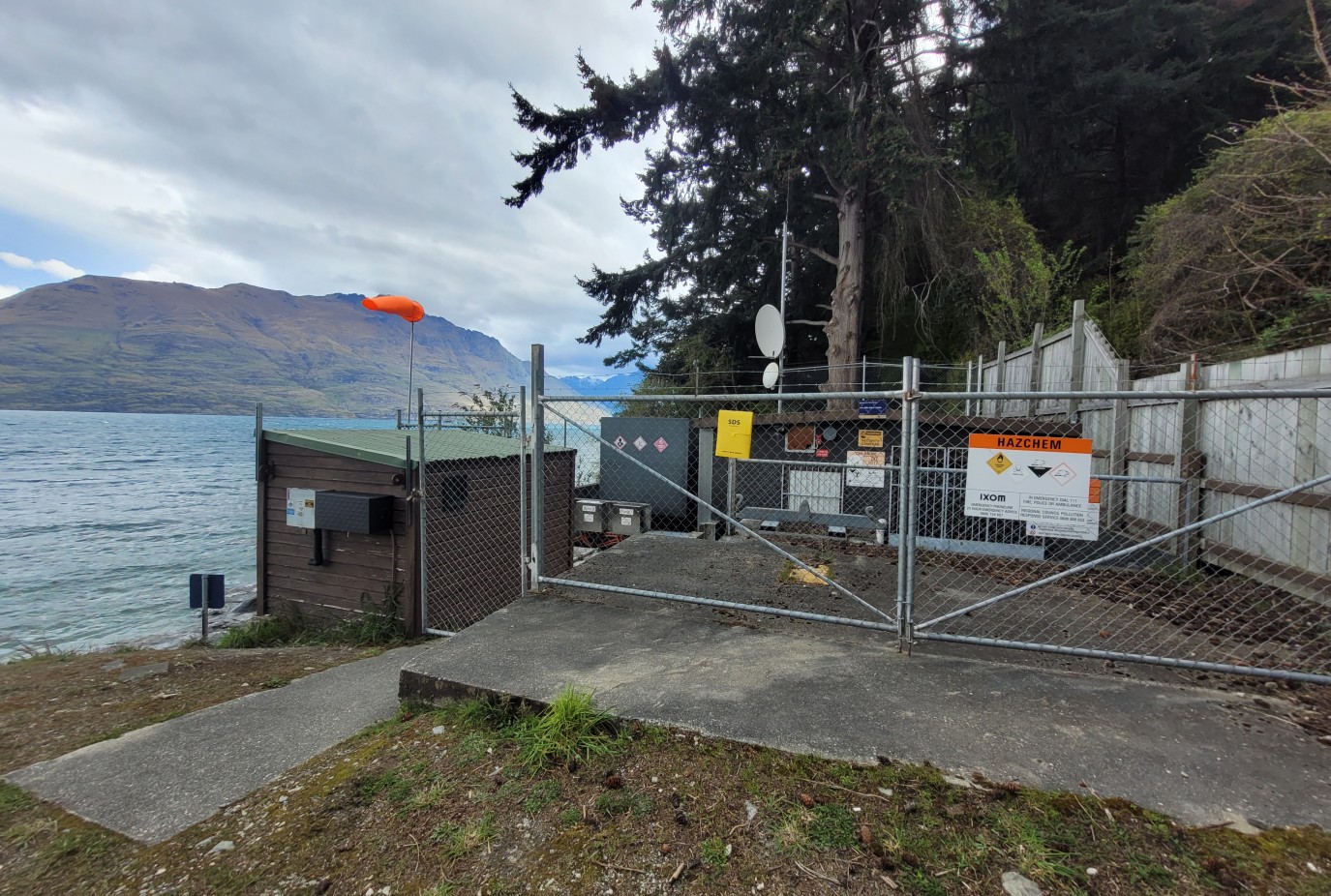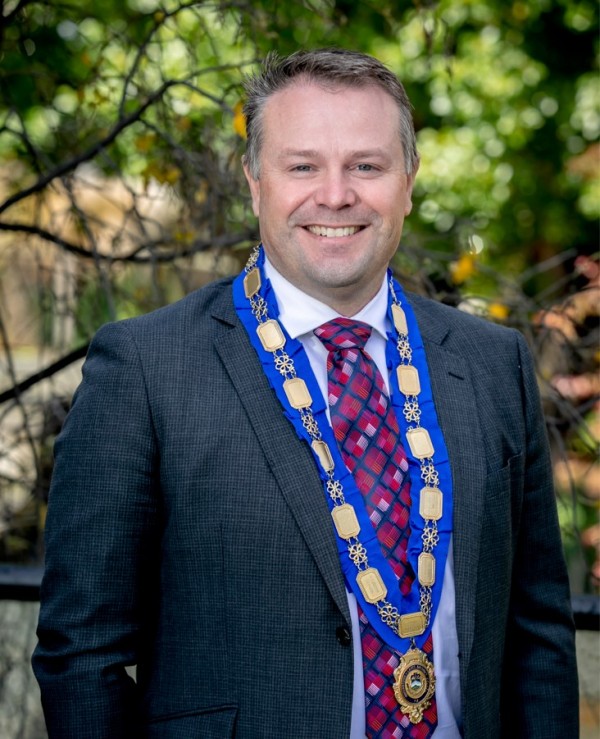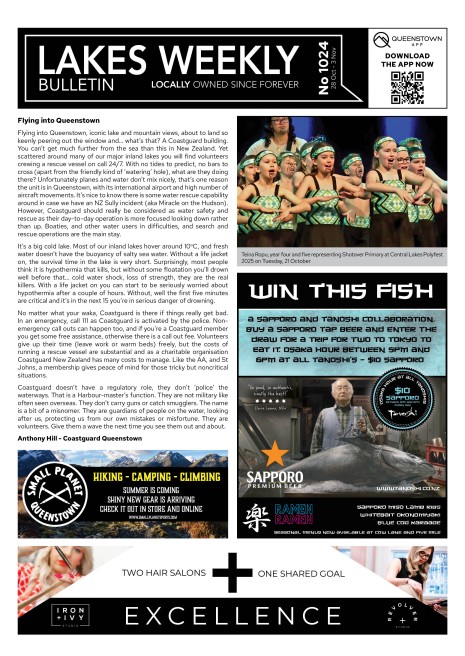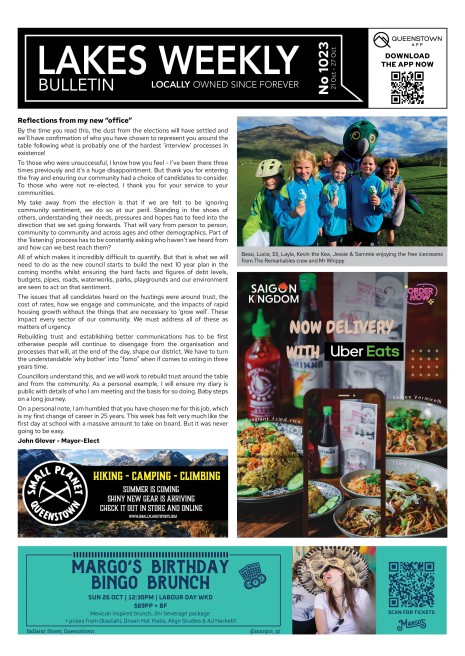Finance sorted - but what about funding?

Queenstown Lakes mayor Glyn Lewers says the council needs more than just new debt tools to pay its whopping $1.5 BILLION water bill.
Lewers says there are many positives in the Coalition Government's water reform policy, Local Water Done Well, announced last week. Replacing Labour's scrapped Three Waters, it will introduce a range of financing tools and allow neighbouring councils to jointly form council-controlled organisations (CCOs) to manage water assets collectively.
But, he says, there's still the need for a local visitor levy or GST-share, to stop the burden falling on ratepayer, especially as millions of visitors use the same pipes.
"Look, I'm happy they've actually set some direction in the financing tools. There's been a bit of a void there, so a little bit of certainty is always welcome," Lewers says.
"But again, these are all financing tools that the Government is suggesting, and the cost of finance obviously will still rest with the ratepayer, no matter where the invoice comes from, whether it's from a CCO or a territorial authority.
"So we're still of the view that to really impact rates affordability for our residents here, we've still got to look at the funding side of the issue. That's where the likes of GST sharing and obviously our advocacy for the visitor levy here in the district comes in.
"They've done the financing but haven't sorted the funding side."

Queenstown Lakes Mayor Glyn Lewers
Clutha Mayor Bryan Cadogan told media that offering councils "more access to debt is like offering a drowning man water," when the policy was mooted back in February.
But Lewers says the situation is slightly different for Queenstown as it is a growing district.
"The likes of Clutha and Gore have a pretty stable population, so they are coming from the position of replacing existing infrastructure.
"For us, we're growing, so ours is mostly new infrastructure, a new asset, and we can drive additional revenue from that asset with a growing population. We have growth to service the debt. We're one of the very few councils that are like that."
Collaboration difficult
Those differences also make collaboration more difficult. North Canterbury's three councils have already announced they will join forces to deliver a water plan for their region, but it's a different dynamic down here.
"It's very hard to get those economies of scale for Otago and Southland because we have a large geographic area and dispersed population centres.
"And just based purely on the numbers, we're about to spend $1.5 billion in the next 10 years on Three Waters. That can be quite confronting for other councils looking to spend $100m or $200m."
He says Southland and Otago councils have been working collaboratively, however.
"We're looking for quick wins, things like procurement, engineering and design standards. Those are the easy ones, but combined assets and stuff like that is probably a discussion for further down the track."
Leverage for high-growth councils
Minister of Local Government Simeon Brown, making the announcement, said the New Zealand Local Government Funding Agency Limited (LGFA) can immediately begin lending to water CCOs that are financially supported by their parent council or councils.
LGFA will support leverage for water CCOs up to a level equivalent to 500% of operating revenues – around twice that of existing councils – subject to water CCOs meeting prudent credit criteria.
Additionally, the Government and LGFA are working together to explore whether debt limits for high-growth councils can be prudently increased beyond the current ceiling, potentially up to 350% of revenue. LGFA lending to water council-controlled organisations which are not supported by their parent councils is also being explored.
"That's a big one for the likes of Queenstown Lakes, Tauranga and Hamilton," Lewers says.
Water meters
QLDC has completed some economic analysis on water meters over the years, but the return on investment is not there. Current Smart Water Meter trials are more to do with providing information on water usage, as well as identifying leaks in the network.
Volumetric charging might be more fair and equitable when you take into account heavy users, such as people with larger lifestyle blocks who irrigate their lawns, Lewers says, but the majority of the district's golf courses and resorts tend to have their own water draw, either from lakes or rivers.









